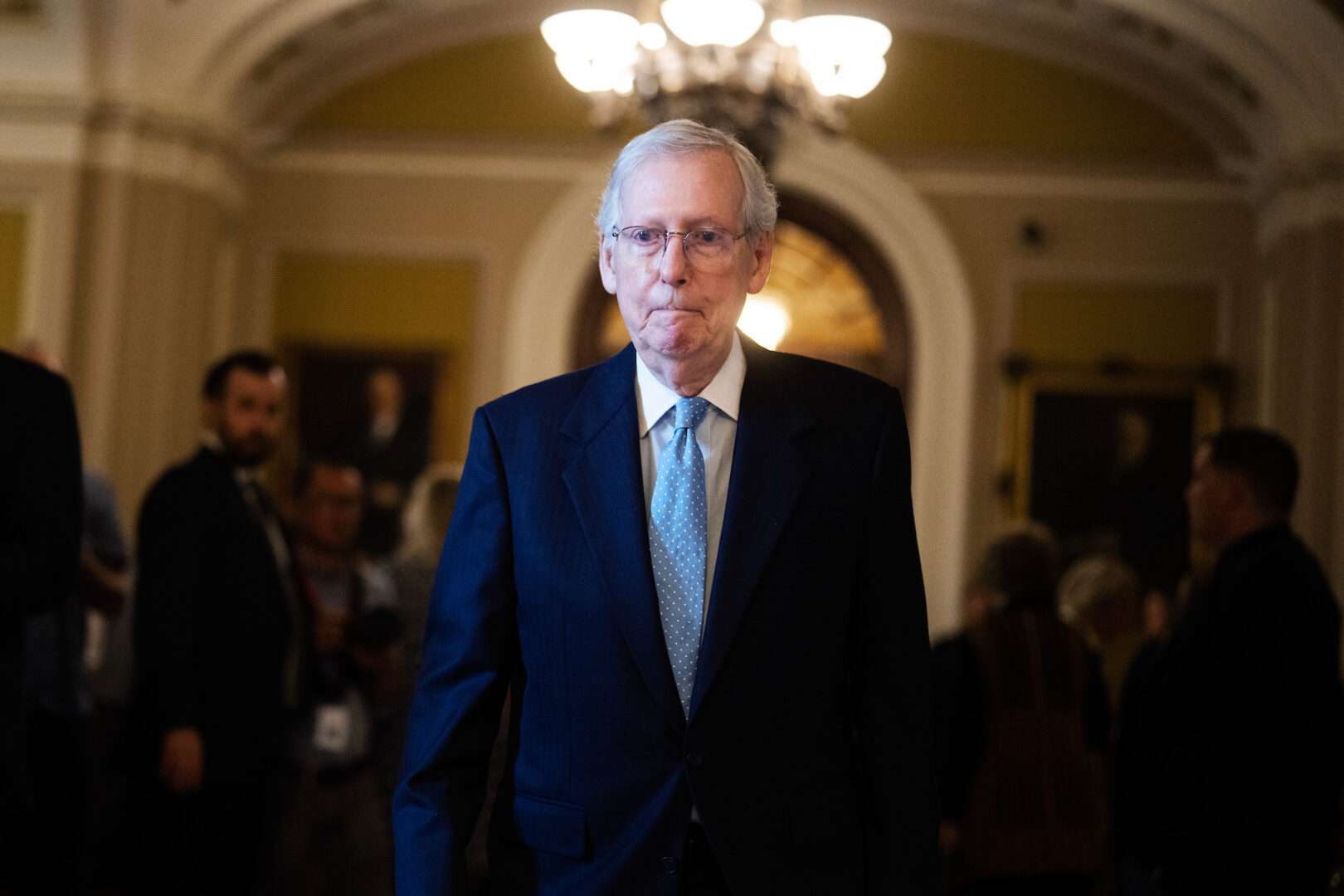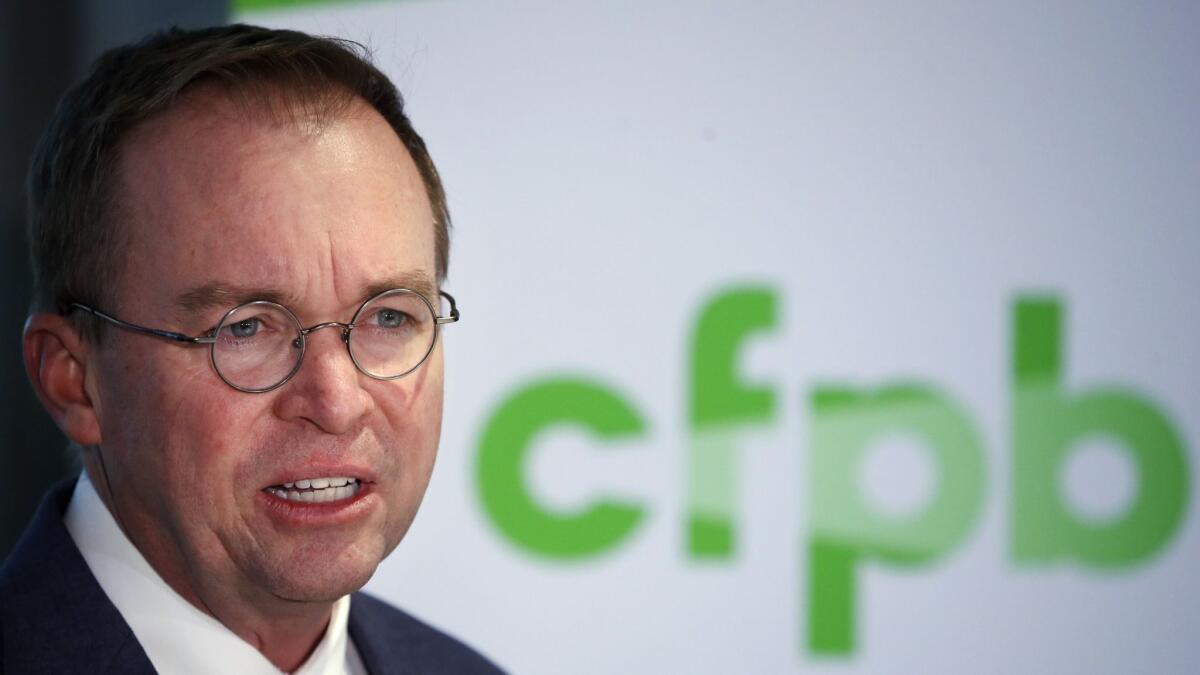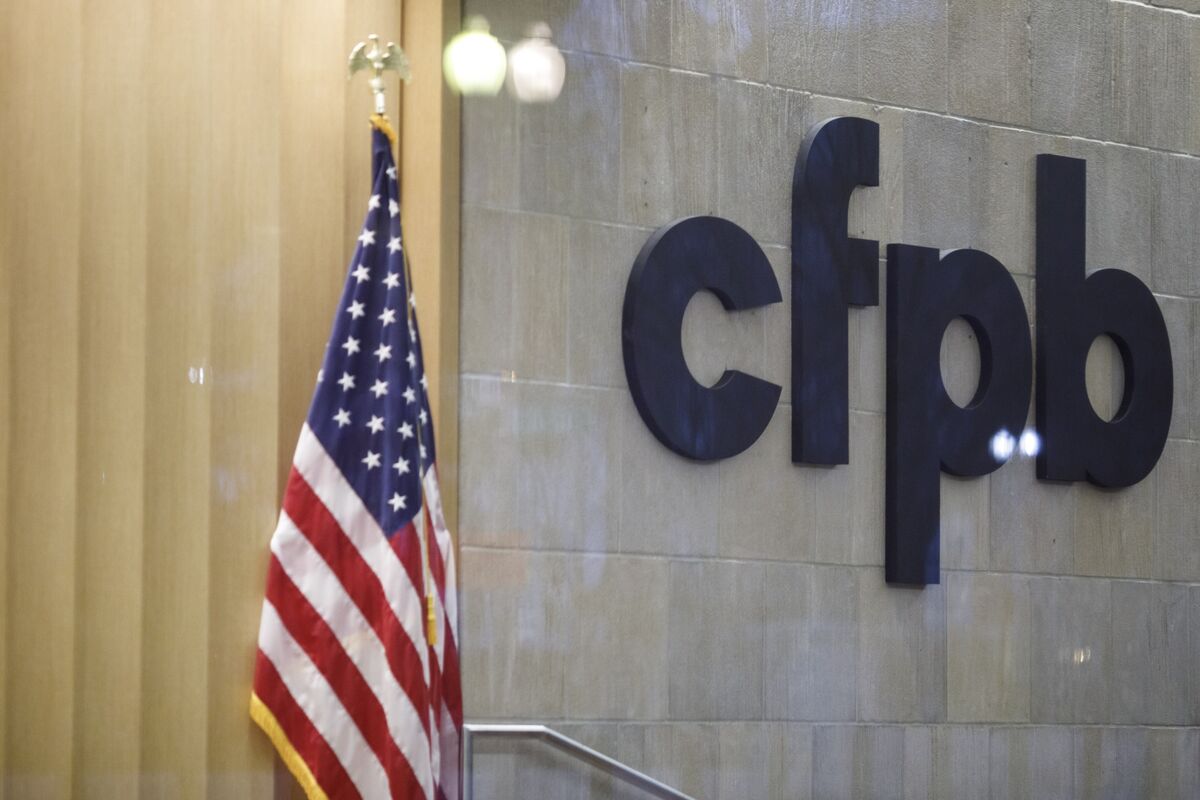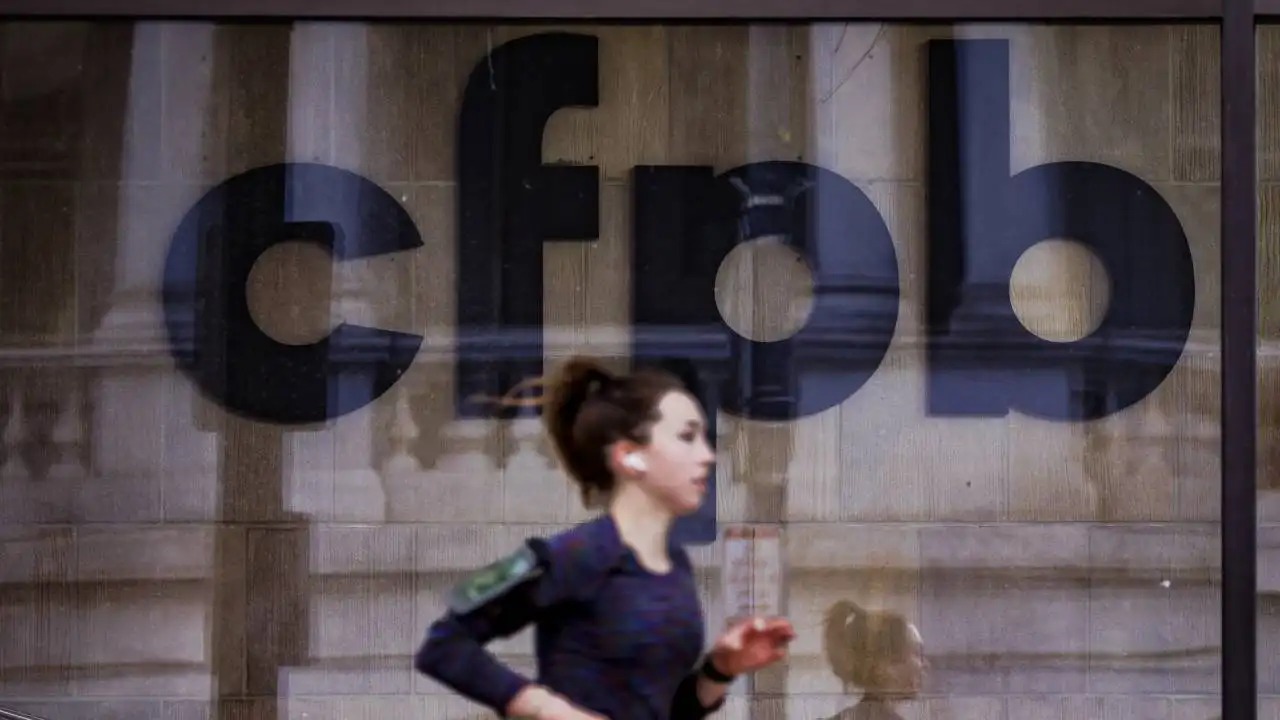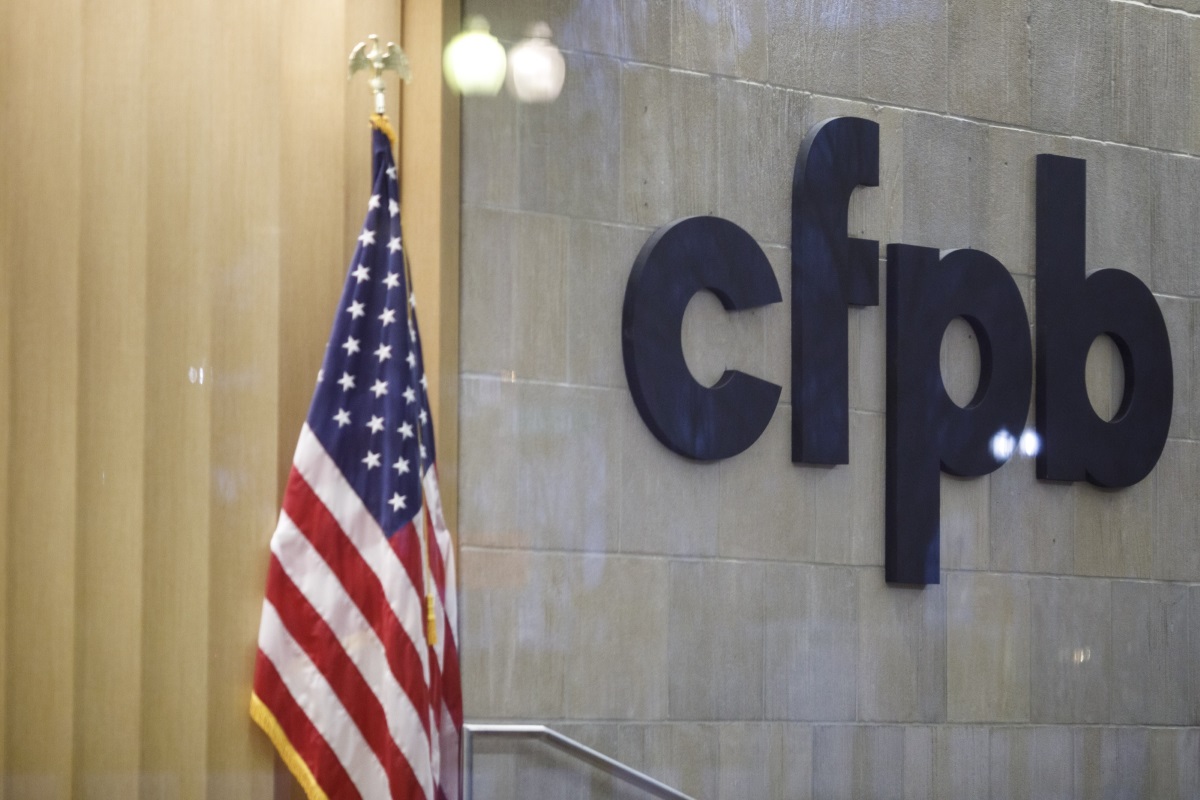Home>Finance>Why Did Mick Mulvaney Dislike The Consumer Financial Protection Bureau?
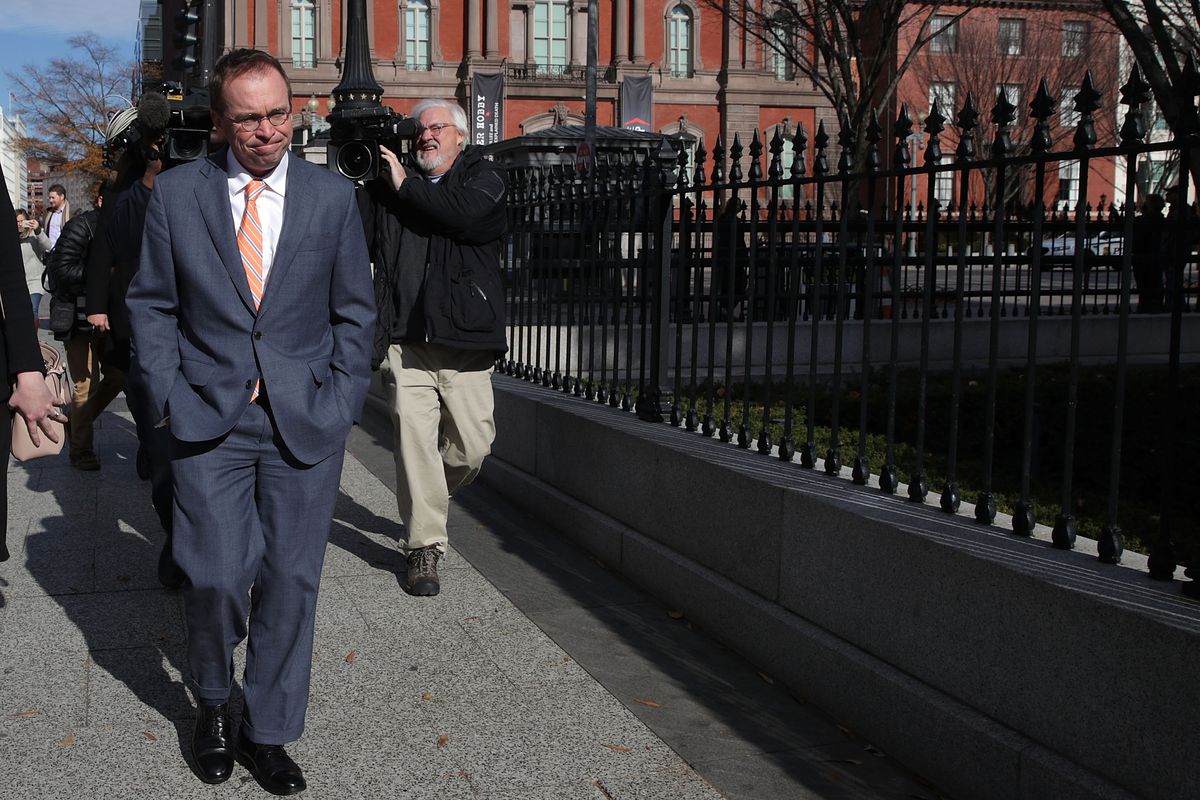

Finance
Why Did Mick Mulvaney Dislike The Consumer Financial Protection Bureau?
Modified: March 1, 2024
Discover the reasons behind Mick Mulvaney's opposition to the Consumer Financial Protection Bureau. Explore the intricate relationship between politics and finance in this insightful analysis.
(Many of the links in this article redirect to a specific reviewed product. Your purchase of these products through affiliate links helps to generate commission for LiveWell, at no extra cost. Learn more)
Table of Contents
- Introduction
- Background of the Consumer Financial Protection Bureau
- Appointment of Mick Mulvaney as Acting Director
- Mulvaney’s Criticisms of the Consumer Financial Protection Bureau
- Alleged Bias and Overreach
- Strained Relationship with Congress and Advocacy Groups
- Attempts to Restrict Funding and Independence
- Conclusion
Introduction
In 2017, the appointment of Mick Mulvaney as the acting director of the Consumer Financial Protection Bureau (CFPB) raised eyebrows and sparked controversy. As a former Republican congressman and staunch critic of the agency, Mulvaney’s disdain for the CFPB was no secret. His appointment was seen as a significant shift in the direction and priorities of the bureau.
The Consumer Financial Protection Bureau was created in the aftermath of the 2008 financial crisis with the goal of protecting consumers in the financial marketplace. Its mission is to ensure fair treatment for consumers and promote transparency and accountability in the financial industry. Over the years, the bureau has played a crucial role in enforcing consumer protection laws, investigating financial institutions, and providing resources and education to empower consumers.
However, Mulvaney’s appointment signaled a potential change in the bureau’s approach and priorities. With his history of opposing the CFPB and advocating for its dismantling, his tenure as acting director raised concerns among consumer advocates and industry watchers.
In this article, we will explore the reasons why Mick Mulvaney disliked the Consumer Financial Protection Bureau and how his actions and decisions during his tenure at the agency reflected that disdain. We will delve into criticisms of the bureau, alleged bias and overreach, strained relationships with Congress and advocacy groups, and attempts to restrict funding and independence.
By examining Mulvaney’s perspectives and actions, we can gain a deeper understanding of the challenges faced by the Consumer Financial Protection Bureau and the potential implications for consumer financial protection in the United States.
Background of the Consumer Financial Protection Bureau
The Consumer Financial Protection Bureau (CFPB) was established in 2011 as a result of the Dodd-Frank Wall Street Reform and Consumer Protection Act. The bureau was created to regulate and oversee consumer financial products and services, ensuring that consumers are protected from predatory practices in the financial industry.
Prior to the creation of the CFPB, consumer financial protection was fragmented across various governmental agencies, which often resulted in inefficient enforcement and oversight. The bureau was designed to consolidate these responsibilities and create a unified regulatory body that is solely focused on consumer financial protection.
The CFPB has been entrusted with the authority to enforce federal consumer financial laws and protect consumers from unfair, deceptive, or abusive practices. It regulates a wide range of financial products and services, including mortgages, credit cards, payday loans, and student loans.
To achieve its mission, the CFPB is responsible for several key functions. These include conducting research and analysis on consumer financial markets, implementing and enforcing consumer protection laws, providing financial education and resources to consumers, handling consumer complaints and inquiries, and promoting fair and transparent practices in the financial industry.
Since its inception, the CFPB has played a significant role in safeguarding the interests of consumers. It has conducted numerous investigations, levied fines against financial institutions for illegal practices, and implemented regulations to enhance transparency and accountability in the industry.
The bureau has also established programs and initiatives to empower and educate consumers about their rights and responsibilities in the financial marketplace. Through its website, publications, and outreach efforts, the CFPB aims to ensure that consumers have the necessary tools and information to make informed financial decisions.
Overall, the establishment of the Consumer Financial Protection Bureau represented a significant step toward strengthening consumer protections in the United States. Its creation reflected a recognition of the need for a dedicated regulatory body with the authority and resources to safeguard consumers from unfair and deceptive financial practices.
Appointment of Mick Mulvaney as Acting Director
In November 2017, Mick Mulvaney, who was serving as the Director of the Office of Management and Budget (OMB) under the Trump administration, was appointed as the acting director of the Consumer Financial Protection Bureau (CFPB). This decision raised eyebrows and drew criticisms due to Mulvaney’s previous stance on the bureau and his skepticism towards its mission.
Mulvaney’s appointment came after the resignation of the bureau’s previous director, Richard Cordray. As a result of conflicting interpretations of the Federal Vacancies Reform Act, there was some controversy surrounding the legalities of his appointment. Nevertheless, Mulvaney assumed the position and began to reshape the agency’s direction.
What made Mulvaney’s appointment particularly notable was his previous vocal opposition to the existence and role of the CFPB. As a congressman, he had been a prominent critic of the bureau, pushing for its dismantling and questioning its structure and authority.
His appointment was seen as a significant departure from the bureau’s initial mission of consumer protection and raised concerns that the agency’s agenda would shift towards favoring the financial industry over consumer interests. Critics feared that Mulvaney’s presence would lead to a weakening of the bureau’s enforcement capabilities and a reduction in regulatory oversight.
Furthermore, Mulvaney’s simultaneous role as Director of the Office of Management and Budget raised additional concerns about conflicts of interest and his ability to impartially oversee the bureau’s operations.
During his time as the acting director, Mulvaney made several controversial decisions that further fueled criticism of his leadership. These decisions included implementing a hiring freeze at the bureau, undermining the enforcement of consumer protection laws, and initiating efforts to reduce the agency’s budget.
Overall, Mulvaney’s appointment as the acting director of the CFPB signaled a shift in the direction and priorities of the bureau. The opposition to the agency and his subsequent actions sparked concerns among consumer advocates, industry stakeholders, and lawmakers about the future of consumer financial protection in the United States.
Mulvaney’s Criticisms of the Consumer Financial Protection Bureau
Mick Mulvaney’s appointment as the acting director of the Consumer Financial Protection Bureau (CFPB) was not merely a change in leadership; it represented a shift in ideology and a platform to voice his long-standing criticisms of the agency.
One of Mulvaney’s primary criticisms of the CFPB was its lack of accountability and oversight. He argued that the bureau had been given unchecked power and that it operated without proper checks and balances. Mulvaney believed that the CFPB should be subject to greater congressional control and that its decisions should be more transparent.
Furthermore, Mulvaney criticized the CFPB’s funding structure, which allows it to operate independently and outside of the traditional congressional appropriations process. He believed that this arrangement gave the agency too much autonomy and made it unaccountable to the American people.
Additionally, Mulvaney expressed concerns about the bureau’s regulatory overreach. He argued that the CFPB had been overly aggressive in its enforcement actions and regulations, imposing burdensome compliance requirements on financial institutions. He believed that the bureau’s approach stifled innovation and hindered economic growth.
Another criticism raised by Mulvaney was the alleged lack of diversity in the agency’s decision-making process. He claimed that the CFPB had become too focused on a one-size-fits-all approach and did not adequately consider the unique needs and circumstances of different communities and demographic groups.
Mulvaney also took issue with the CFPB’s consumer complaint database, arguing that it lacked transparency and was susceptible to abuse. He believed that the bureau should take greater steps to verify and validate the complaints it received before making them public.
It is important to note that Mulvaney’s criticisms were not universally accepted. Supporters of the CFPB argued that the bureau was created precisely to address the issues of accountability and oversight in the financial industry. They believed that the agency’s independence and consumer-focused approach were necessary to protect consumers from predatory practices.
Nevertheless, Mulvaney’s criticisms formed the basis for his actions and decisions as the acting director of the CFPB. His tenure saw a significant shift in the bureau’s approach and priorities, with a stronger emphasis on reducing regulations and scaling back enforcement actions.
Overall, Mulvaney’s criticisms reflected a broader debate about the role and scope of the CFPB in safeguarding consumers and regulating the financial industry. His tenure as acting director brought these debates to the forefront and highlighted the ongoing challenges faced by the agency.
Alleged Bias and Overreach
One of the key criticisms leveled against the Consumer Financial Protection Bureau (CFPB) during Mick Mulvaney’s tenure as acting director was the allegation of bias and overreach. Critics argued that the agency had a tendency to favor certain groups and industries, while overstepping its authority in regulating the financial marketplace.
One of the main concerns was the perceived bias in the CFPB’s enforcement actions. Critics claimed that the bureau disproportionately targeted certain industries, such as payday lenders and debt collectors, while neglecting to address wrongdoing by other financial institutions. This led to accusations of selective enforcement and an uneven playing field in the financial industry.
The CFPB’s handling of the indirect auto lending issue exemplified these concerns. The agency alleged that some auto lenders engaged in discriminatory practices by charging higher interest rates to minority borrowers. However, critics argued that the methodology used by the CFPB to determine discrimination was flawed, leading to unjustified enforcement actions against innocent lenders.
Furthermore, critics accused the CFPB of overreaching its regulatory authority. They argued that the agency exceeded its mandate by imposing stringent regulations on financial institutions, which they believed stifled innovation and hindered economic growth. Critics viewed the bureau’s approach as overly burdensome and harmful to small businesses operating in the financial sector.
One notable example of alleged regulatory overreach was the CFPB’s controversial payday lending rule. The rule aimed to impose stricter regulations on small-dollar lending, but critics argued that it would effectively eliminate access to credit for many consumers who rely on payday loans as a financial lifeline. They claimed that the bureau’s one-size-fits-all approach failed to consider the unique circumstances and needs of individuals seeking these loans.
It is important to note that supporters of the CFPB countered these allegations, arguing that the bureau’s enforcement actions and regulations were necessary to protect consumers from abusive practices and ensure a level playing field in the financial industry. They believed that such measures were vital to prevent predatory lending and promote fair and transparent financial markets.
Ultimately, the debate surrounding alleged bias and overreach highlighted the challenges of balancing consumer protection with industry accountability. Mulvaney’s tenure as acting director brought these issues to the forefront and sparked further discussions about the appropriate scope and authority of the CFPB.
Strained Relationship with Congress and Advocacy Groups
Mick Mulvaney’s leadership of the Consumer Financial Protection Bureau (CFPB) was marked by a strained relationship with Congress and advocacy groups. His actions and decisions during his tenure as acting director often clashed with the priorities and values of these stakeholders, leading to increased tensions and criticisms.
One prominent source of tension was Mulvaney’s perceived lack of cooperation with Congress. Critics contended that he displayed a reluctance to engage with lawmakers and provide necessary information, hindering congressional oversight of the agency. Some accused him of undermining the CFPB’s independence by disregarding congressional requests for data and other materials.
An example of this strained relationship with Congress was Mulvaney’s decision to reduce the frequency of the CFPB’s semiannual report to Congress. Critics argued that this move weakened transparency and limited the agency’s accountability to the legislative branch.
Besides Congress, advocacy groups also voiced numerous concerns about Mulvaney’s leadership and its impact on consumer protection. These groups accused him of prioritizing the interests of financial institutions over those of consumers. They argued that his efforts to roll back regulations and enforcement actions undermined the CFPB’s mission to safeguard consumers from predatory practices in the financial industry.
Another point of contention was Mulvaney’s decision to restructure the CFPB’s advisory boards. He dissolved the Consumer Advisory Board and other advisory groups, arguing that they were too heavily weighted towards industry interests. However, advocacy groups saw this move as an attempt to silence the voices of consumer advocates and limit their influence in shaping the agency’s policies and decisions.
Mulvaney’s strained relationship with advocacy groups was further exemplified by his decision to implement a more industry-friendly approach at the agency. Critics believed that his actions signaled a disregard for the voices of consumer advocates and a shift towards deregulation, which they feared would lead to weakened consumer protections.
It is important to note that not all stakeholders had a strained relationship with Mulvaney and the CFPB during his tenure. Some members of Congress and industry groups viewed his actions favorably, applauding his efforts to reduce regulatory burdens and promote a more balanced approach to consumer protection.
Nevertheless, the strained relationship with Congress and advocacy groups underscored the challenges faced by the CFPB in finding common ground between consumer protection and industry interests. It highlighted the ongoing debate surrounding the appropriate role and scope of the agency in overseeing the financial industry and promoting consumer financial well-being.
Attempts to Restrict Funding and Independence
During Mick Mulvaney’s tenure as the acting director of the Consumer Financial Protection Bureau (CFPB), there were notable efforts to restrict the agency’s funding and independence. These attempts were seen by critics as an undermining of the bureau’s effectiveness and autonomy in protecting consumers in the financial marketplace.
One of the main actions taken to restrict the CFPB’s funding was through Mulvaney’s request for a budget of $0. This unprecedented move was seen as an attempt to limit the agency’s resources and hinder its ability to carry out its mission. Critics argued that such a request jeopardized the CFPB’s ability to effectively enforce consumer financial laws and protect consumers from predatory practices.
In addition to seeking a budget of $0, Mulvaney pursued efforts to place the CFPB under the control of Congress, with funding subject to the annual appropriations process. This move would have curtailed the bureau’s independence, making it vulnerable to political influences that could compromise its consumer protection mandate.
Mulvaney also pursued changes to the CFPB’s structure and governance that would have further limited its independence. He proposed having the agency headed by a commission rather than a single director, arguing that a commission would provide a more balanced decision-making process. However, critics saw this as an attempt to dilute the CFPB’s authority and hold it back from taking decisive action to protect consumers.
Furthermore, Mulvaney attempted to rein in the CFPB’s enforcement capabilities. He scaled back the agency’s investigations and slowed down enforcement actions against financial institutions. Critics saw this as a deliberate effort to weaken the CFPB’s power to hold accountable those in the financial industry who engage in predatory and abusive practices.
These attempts to restrict funding and independence raised concerns among consumer advocates and industry watchdogs. They argued that limiting the CFPB’s resources and independence compromised its ability to effectively regulate the financial industry and protect consumers from harmful practices.
While Mulvaney’s efforts faced opposition from advocates and some lawmakers, it is worth noting that his actions aligned with the broader political push to reduce government regulations and lessen the perceived burden on businesses. Proponents of these measures argued that they aimed to strike a balance between consumer protection and promoting a more business-friendly regulatory environment.
Ultimately, the attempts to restrict the funding and independence of the CFPB underscored the ideological divide surrounding the role and scope of the agency. They brought to the forefront the ongoing debate about the appropriate balance between consumer protection and industry interests in the financial marketplace.
Conclusion
Mick Mulvaney’s tenure as the acting director of the Consumer Financial Protection Bureau (CFPB) was rife with controversy and criticisms. His appointment raised concerns about the future of consumer financial protection as his known disdain for the agency became apparent. Mulvaney’s criticisms of the CFPB, alleged bias, and overreach shaped his decisions and actions during his time at the bureau.
The strains in his relationship with Congress and advocacy groups were evident, with accusations of hindered transparency and limited accountability. During his tenure, Mulvaney’s attempts to restrict the funding and independence of the CFPB raised concerns about the agency’s ability to effectively protect consumers.
However, it is important to note that the criticisms and actions taken by Mulvaney were not universally accepted. Supporters of his approach argued that it aimed to strike a better balance between consumer protection and industry interests. They believed that the CFPB had overreached in certain areas and needed to be reined in to promote a more business-friendly environment.
As Mulvaney’s tenure ended and a new director took over, the challenges faced by the CFPB remained. The debate surrounding the role and scope of the agency, and its delicate balance between consumer protection and industry interests, continues to shape the future of financial regulation in the United States.
While the CFPB’s mission of protecting consumers in the financial marketplace is crucial, finding a consensus on the best approach to achieve this goal remains a challenge. Balancing the needs of consumers, the interests of the financial industry, and the overall economy requires ongoing dialogue, collaboration, and a commitment to finding common ground.
As the CFPB continues its work, it will be important to ensure that consumer financial protection remains a priority. Regardless of the criticisms and challenges faced, the fundamental goal of promoting fair treatment, transparency, and accountability in the financial industry must always guide the agency’s actions and decisions.
In conclusion, Mick Mulvaney’s tenure as the acting director of the CFPB highlighted the complexities and divergent views surrounding consumer financial protection. It served as a reminder of the ongoing debates and challenges in striking the right balance between safeguarding consumers and supporting a thriving financial marketplace.
